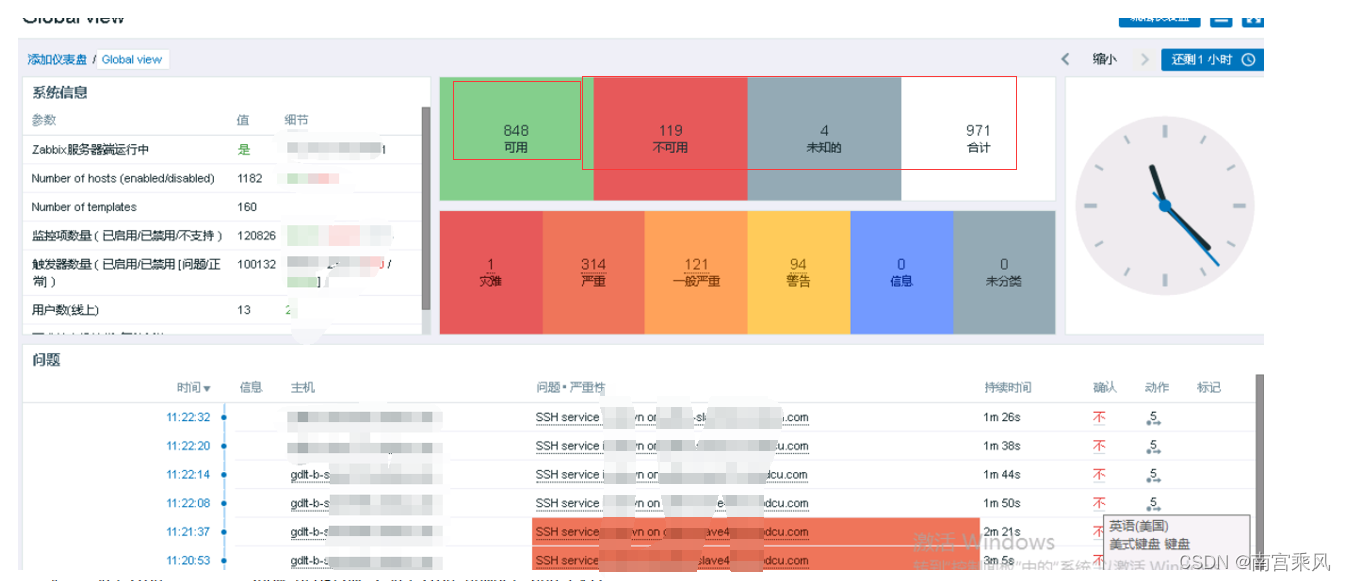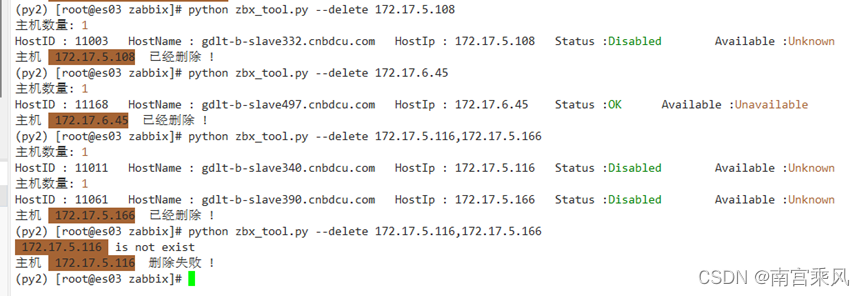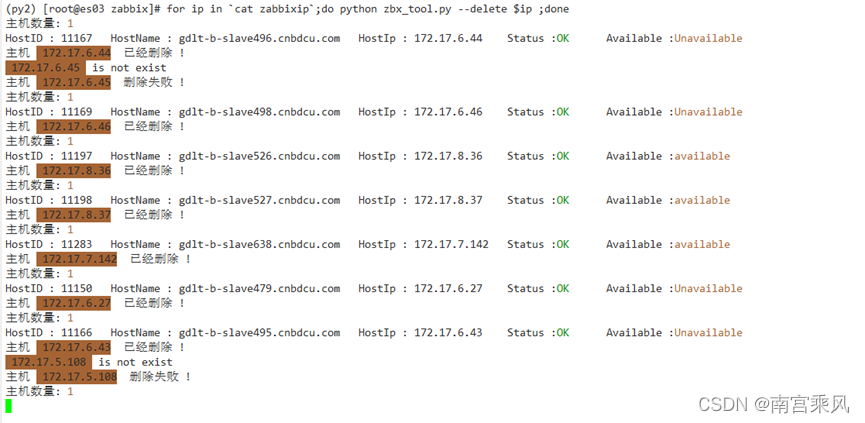1
2
3
4
5
6
7
8
9
10
11
12
13
14
15
16
17
18
19
20
21
22
23
24
25
26
27
28
29
30
31
32
33
34
35
36
37
38
39
40
41
42
43
44
45
46
47
48
49
50
51
52
53
54
55
56
57
58
59
60
61
62
63
64
65
66
67
68
69
70
71
72
73
74
75
76
77
78
79
80
81
82
83
84
85
86
87
88
89
90
91
92
93
94
95
96
97
98
99
100
101
102
103
104
105
106
107
108
109
110
111
112
113
114
115
116
117
118
119
120
121
122
123
124
125
126
127
128
129
130
131
132
133
134
135
136
137
138
139
140
141
142
143
144
145
146
147
148
149
150
151
152
153
154
155
156
157
158
159
160
161
162
163
164
165
166
167
168
169
170
171
172
173
174
175
176
177
178
179
180
181
182
183
184
185
186
187
188
189
190
191
192
193
194
195
196
197
198
199
200
201
202
203
204
205
206
207
208
209
210
211
212
213
214
215
216
217
218
219
220
221
222
223
224
225
226
227
228
229
230
231
232
233
234
235
236
237
238
239
240
241
242
243
244
245
246
247
248
249
250
251
252
253
254
255
256
257
258
259
260
261
262
263
264
265
266
267
268
269
270
271
272
273
274
275
276
277
278
279
280
281
282
283
284
285
286
287
288
289
290
291
292
293
294
295
296
297
298
299
300
301
302
303
304
305
306
307
308
309
310
311
312
313
314
315
316
317
318
319
320
321
322
323
324
325
326
327
328
329
330
331
332
333
334
335
336
337
338
339
340
341
342
343
344
345
346
347
348
349
350
351
352
353
354
355
356
357
358
359
360
361
362
363
364
365
366
367
368
369
370
371
372
373
374
375
376
377
378
379
380
381
382
383
384
385
386
387
388
389
390
391
392
393
394
395
396
397
398
399
400
401
402
403
404
405
406
407
408
409
410
411
412
413
414
415
416
417
418
419
420
421
422
423
424
425
426
427
428
429
430
431
432
433
434
435
436
437
438
439
440
441
442
443
444
445
446
447
448
449
450
451
452
453
454
455
456
457
458
459
460
461
462
463
464
465
466
467
468
469
470
471
472
473
474
475
476
477
478
479
480
481
482
483
484
485
486
487
488
489
490
491
492
493
494
495
496
497
498
499
500
501
502
503
504
505
506
507
508
509
|
#!/usr/bin/env python
#-*- coding: utf-8 -*-
import json
import sys
import urllib2
import argparse
from urllib2 import URLError
reload(sys)
sys.setdefaultencoding('utf-8')
class zabbix_api:
def __init__(self):
self.url = 'http://zabbix.xxx.com/api_jsonrpc.php'
self.header = {"Content-Type":"application/json"}
def user_login(self):
data = json.dumps({
"jsonrpc": "2.0",
"method": "user.login",
"params": {
"user": "admin",
"password": "zabbix"
},
"id": 0
})
request = urllib2.Request(self.url, data)
for key in self.header:
request.add_header(key, self.header[key])
try:
result = urllib2.urlopen(request)
except URLError as e:
print "\033[041m 认证失败,请检查URL !\033[0m",e.code
except KeyError as e:
print "\033[041m 认证失败,请检查用户名密码 !\033[0m",e
else:
response = json.loads(result.read())
result.close()
#print response['result']
self.authID = response['result']
return self.authID
def hostid_get_hostname(self, hostId=''):
data = json.dumps({
"jsonrpc": "2.0",
"method": "host.get",
"params": {
"output": "extend",
"filter": {"hostid": hostId}
},
"auth": self.user_login(),
"id": 1
})
request = urllib2.Request(self.url, data)
for key in self.header:
request.add_header(key, self.header[key])
try:
result = urllib2.urlopen(request)
except URLError as e:
if hasattr(e, 'reason'):
print 'We failed to reach a server.'
print 'Reason: ', e.reason
elif hasattr(e, 'code'):
print 'The server could not fulfill the request.'
print 'Error code: ', e.code
else:
response = json.loads(result.read())
#print response
result.close()
if not len(response['result']):
print "hostId is not exist"
return False
#print "主机数量: \33[31m%s\33[0m" % (len(response['result']))
host_dict=dict()
for host in response['result']:
status = {"0": "OK", "1": "Disabled"}
available = {"0": "Unknown", "1": "available", "2": "Unavailable"}
#if len(hostId) == 0:
# print "HostID : %s\t HostName : %s\t Status :\33[32m%s\33[0m \t Available :\33[31m%s\33[0m" % (
# host['hostid'], host['name'], status[host['status']], available[host['available']])
#else:
# print "HostID : %s\t HostName : %s\t Status :\33[32m%s\33[0m \t Available :\33[31m%s\33[0m" % (
# host['hostid'], host['name'], status[host['status']], available[host['available']])
host_dict['name']=host['name']
host_dict['status']=status[host['status']]
host_dict['available']=available[host['available']]
return host_dict
def hostid_get_hostip(self, hostId=''):
data = json.dumps({
"jsonrpc": "2.0",
"method": "hostinterface.get",
"params": {
"output": "extend",
"filter": {"hostid": hostId}
},
"auth": self.user_login(),
"id": 1
})
request = urllib2.Request(self.url, data)
for key in self.header:
request.add_header(key, self.header[key])
try:
result = urllib2.urlopen(request)
except URLError as e:
if hasattr(e, 'reason'):
print 'We failed to reach a server.'
print 'Reason: ', e.reason
elif hasattr(e, 'code'):
print 'The server could not fulfill the request.'
print 'Error code: ', e.code
else:
response = json.loads(result.read())
# print response
result.close()
if not len(response['result']):
print "\033[041m hostid \033[0m is not exist"
return False
#print "主机数量: \33[31m%s\33[0m" % (len(response['result']))
for hostip in response['result']:
#print hostip
#if len(hostip) == 0:
# print "HostID : %s\t HostIp : %s \t Port : %s " % (hostip['hostid'], hostip['ip'], hostip['port'])
#else:
# print "HostID : %s\t HostIp :\33[32m%s\33[0m \t Port :\33[31m%s\33[0m" % (
# hostip['hostid'], hostip['ip'], hostip['port'])
return hostip['ip']
def host_get(self,hostName=''):
data=json.dumps({
"jsonrpc": "2.0",
"method": "host.get",
"params": {
"output": "extend",
#"filter":{"host":""}
"filter":{"host":hostName}
},
"auth": self.user_login(),
"id": 1
})
request = urllib2.Request(self.url,data)
for key in self.header:
request.add_header(key, self.header[key])
try:
result = urllib2.urlopen(request)
except URLError as e:
if hasattr(e, 'reason'):
print 'We failed to reach a server.'
print 'Reason: ', e.reason
elif hasattr(e, 'code'):
print 'The server could not fulfill the request.'
print 'Error code: ', e.code
else:
response = json.loads(result.read())
#print reqponse
result.close()
if not len(response['result']):
print "\033[041m %s \033[0m is not exist" % hostName
return False
print "主机数量: \033[31m%s\033[0m"%(len(response['result']))
for host in response['result']:
status={"0":"OK","1":"Disabled"}
available={"0":"Unknown","1":"available","2":"Unavailable"}
#print host
if len(hostName)==0:
print "HostID : %s\t HostName : %s\t HostIp : %s\t Status :%s \t Available :%s"%(host['hostid'],host['name'],self.hostid_get_hostip(hostId=host['hostid']),status[host['status']],available[host['available']])
else:
print "HostID : %s\t HostName : %s\t HostIp : %s\t Status :\033[32m%s\033[0m \t Available :\033[31m%s\033[0m"%(host['hostid'],host['name'],self.hostid_get_hostip(hostId=host['hostid']),status[host['status']],available[host['available']])
return host['hostid']
def hostip_get(self, hostIp=''):
data = json.dumps({
"jsonrpc": "2.0",
"method": "hostinterface.get",
"params": {
"output": "extend",
"filter": {"ip": hostIp}
},
"auth": self.user_login(),
"id": 1
})
request = urllib2.Request(self.url, data)
for key in self.header:
request.add_header(key, self.header[key])
try:
result = urllib2.urlopen(request)
except URLError as e:
if hasattr(e, 'reason'):
print 'We failed to reach a server.'
print 'Reason: ', e.reason
elif hasattr(e, 'code'):
print 'The server could not fulfill the request.'
print 'Error code: ', e.code
else:
response = json.loads(result.read())
# print response
result.close()
if not len(response['result']):
print "\033[041m hostip \033[0m is not exist"
return False
print "主机数量: \33[31m%s\33[0m" % (len(response['result']))
for hostip in response['result']:
host = self.hostid_get_hostname(hostip['hostid'])
if len(hostip) == 0:
print "HostID : %s\t HostName : %s\t HostIp : %s\t Status :\33[32m%s\33[0m \t Available :\33[31m%s\33[0m"%(hostip['hostid'],host['name'],hostip['ip'],host['status'],host['available'])
else:
print "HostID : %s\t HostName : %s\t HostIp : %s\t Status :\33[32m%s\33[0m \t Available :\33[31m%s\33[0m"%(hostip['hostid'],host['name'],hostip['ip'],host['status'],host['available'])
return hostip['hostid']
def hostgroup_get(self, hostgroupName=''):
data = json.dumps({
"jsonrpc":"2.0",
"method":"hostgroup.get",
"params":{
"output": "extend",
"filter": {
"name": hostgroupName
}
},
"auth":self.user_login(),
"id":1,
})
request = urllib2.Request(self.url,data)
for key in self.header:
request.add_header(key, self.header[key])
try:
result = urllib2.urlopen(request)
except URLError as e:
print "Error as ", e
else:
# result.read()
response = json.loads(result.read())
result.close()
#print response()
if not len(response['result']):
print "\033[041m %s \033[0m is not exist" % hostgroupName
return False
for group in response['result']:
if len(hostgroupName)==0:
print "hostgroup: \033[31m%s\033[0m \tgroupid : %s" %(group['name'],group['groupid'])
else:
print "hostgroup: \033[31m%s\033[0m\tgroupid : %s" %(group['name'],group['groupid'])
self.hostgroupID = group['groupid']
return group['groupid']
def template_get(self,templateName=''):
data = json.dumps({
"jsonrpc":"2.0",
"method": "template.get",
"params": {
"output": "extend",
"filter": {
"name":templateName
}
},
"auth":self.user_login(),
"id":1,
})
request = urllib2.Request(self.url, data)
for key in self.header:
request.add_header(key, self.header[key])
try:
result = urllib2.urlopen(request)
except URLError as e:
print "Error as ", e
else:
response = json.loads(result.read())
result.close()
#print response
if not len(response['result']):
print "\033[041m %s \033[0m is not exist" % templateName
return False
for template in response['result']:
if len(templateName)==0:
print "template : %s \t id : %s" % (template['name'], template['templateid'])
else:
self.templateID = response['result'][0]['templateid']
print "Template Name :%s"%templateName
return response['result'][0]['templateid']
def hostgroup_create(self,hostgroupName):
if self.hostgroup_get(hostgroupName):
print "hostgroup \033[42m%s\033[0m is exist !" % hostgroupName
sys.exit(1)
data = json.dumps({
"jsonrpc": "2.0",
"method": "hostgroup.create",
"params": {
"name": hostgroupName
},
"auth": self.user_login(),
"id": 1
})
request=urllib2.Request(self.url,data)
for key in self.header:
request.add_header(key, self.header[key])
try:
result = urllib2.urlopen(request)
except URLError as e:
print "Error as ", e
else:
response = json.loads(result.read())
result.close()
print "添加主机组:%s hostgroupID : %s"%(hostgroupName,self.hostgroup_get(hostgroupName))
def host_create(self, hostIp, hostgroupName, templateName, hostName):
if self.host_get(hostName) or self.hostip_get(hostIp):
print "该主机已经添加!"
sys.exit(1)
group_list=[]
template_list=[]
for i in hostgroupName.split(','):
var = {}
var['groupid'] = self.hostgroup_get(i)
group_list.append(var)
for i in templateName.split(','):
var={}
var['templateid']=self.template_get(i)
template_list.append(var)
data = json.dumps({
"jsonrpc":"2.0",
"method":"host.create",
"params":{
"host": hostName,
"interfaces": [
{
"type": 1,
"main": 1,
"useip": 1,
"ip": hostIp,
"dns": "",
"port": "10050"
}
],
"groups": group_list,
"templates": template_list,
},
"auth": self.user_login(),
"id":1
})
request = urllib2.Request(self.url, data)
for key in self.header:
request.add_header(key, self.header[key])
try:
result = urllib2.urlopen(request)
response = json.loads(result.read())
result.close()
print "add host : %s id :%s" % (hostIp, hostName)
except URLError as e:
print "Error as ", e
except KeyError as e:
print "\033[041m 主机添加有误,请检查模板正确性或主机是否添加重复 !\033[0m",e
print response
def host_disable(self,hostip):
data=json.dumps({
"jsonrpc": "2.0",
"method": "host.update",
"params": {
"hostid": self.host_get(hostip),
"status": 1
},
"auth": self.user_login(),
"id": 1
})
request = urllib2.Request(self.url,data)
#opener = urllib2.build_opener(urllib2.HTTPBasicAuthHandler(TerminalPassword()))
for key in self.header:
request.add_header(key, self.header[key])
try:
result = urllib2.urlopen(request)
#result = opener.open(request)
except URLError as e:
print "Error as ", e
else:
response = json.loads(result.read())
result.close()
print '------------主机现在状态------------'
print self.host_get(hostip)
def host_enable(self,hostip):
data=json.dumps({
"jsonrpc": "2.0",
"method": "host.update",
"params": {
"hostid": self.host_get(hostip),
"status": 0
},
"auth": self.user_login(),
"id": 1
})
request = urllib2.Request(self.url,data)
for key in self.header:
request.add_header(key, self.header[key])
try:
result = urllib2.urlopen(request)
#result = opener.open(request)
except URLError as e:
print "Error as ", e
else:
response = json.loads(result.read())
result.close()
print '------------主机现在状态------------'
print self.host_get(hostip)
def host_delete(self,hostNames):
hostid_list=[]
for hostName in hostNames.split(','):
hostid = self.host_get(hostName=hostName)
if not hostid:
print "主机 \033[041m %s\033[0m 删除失败 !" % hostName
sys.exit()
hostid_list.append(hostid)
data=json.dumps({
"jsonrpc": "2.0",
"method": "host.delete",
"params": hostid_list,
"auth": self.user_login(),
"id": 1
})
request = urllib2.Request(self.url,data)
for key in self.header:
request.add_header(key, self.header[key])
try:
result = urllib2.urlopen(request)
result.close()
print "主机 \033[041m %s\033[0m 已经删除 !" % hostName
except Exception,e:
print e
if __name__ == "__main__":
zabbix=zabbix_api()
parser=argparse.ArgumentParser(description='zabbix api ',usage='%(prog)s [options]')
parser.add_argument('-H','--host',nargs='?',dest='listhost',default='host',help='查询主机')
parser.add_argument('-G','--group',nargs='?',dest='listgroup',default='group',help='查询主机组')
parser.add_argument('-T','--template',nargs='?',dest='listtemp',default='template',help='查询模板信息')
parser.add_argument('-A','--add-group',nargs=1,dest='addgroup',help='添加主机组')
parser.add_argument('-C','--add-host',dest='addhost',nargs=4,metavar=('192.168.2.1', 'groupname', 'Template01,Template02', 'hostName'),help='添加主机,多个主机组或模板使用逗号')
parser.add_argument('-d','--disable',dest='disablehost',nargs='+',metavar=('sh-aa-01'),help='禁用主机,填写主机名,多个主机名之间用逗号')
parser.add_argument('-e','--enable',dest='enablehost',nargs=1,metavar=('sh-aa-01'),help='开启主机')
parser.add_argument('-D','--delete',dest='deletehost',nargs='+',metavar=('sh-aa-01'),help='删除主机,多个主机之间用逗号')
parser.add_argument('-v','--version', action='version', version='%(prog)s 1.0')
if len(sys.argv) == 1:
#print parser.print_help()
#print zabbix.host_get(hostName='bbb')
#print zabbix.hostip_get(hostIp='127.0.0.1')
#print zabbix.hostid_get_hostname(hostId='10108')
#print zabbix.hostid_get_hostid(hostId='10105')
#print zabbix.hostgroup_get(hostgroupName='Linux servers')
#print zabbix.hostgroup_get(hostgroupName='aaa')
# ...
print zabbix.host_delete('hz-aaa-02')
else:
args = parser.parse_args()
if args.listhost != 'host':
if args.listhost:
zabbix.host_get(args.listhost)
else:
zabbix.host_get()
if args.listgroup != 'group':
if args.listgroup:
zabbix.hostgroup_get(args.listgroup)
else:
zabbix.hostgroup_get()
if args.listtemp != 'template':
if args.listtemp:
zabbix.template_get(args.listtemp)
else:
zabbix.template_get()
if args.addgroup:
zabbix.hostgroup_create(args.addgroup[0])
if args.addhost:
zabbix.host_create(args.addhost[0], args.addhost[1], args.addhost[2], args.addhost[3])
if args.disablehost:
zabbix.host_disable(args.disablehost)
if args.deletehost:
zabbix.host_delete(args.deletehost[0])
|








